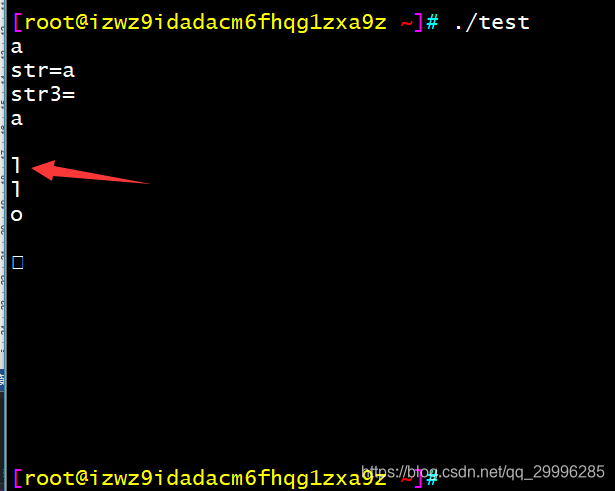玩一玩字符串指针
本文共 1152 字,大约阅读时间需要 3 分钟。
gcc版本 8.2.0 Linux centos 7
输出字符串数组中的每个值
发现——字符串末尾的\0是真实存在的
1 #include2 using namespace std; 3 4 int main(){ 5 char str[]="hello"; 7 for(auto i :str){ 8 cout< <
字符串最后的\0也被输出了。

修改字符串数组str索引位置为0的地址上的值
故意写的超过一个字符,最后报错——段错误
1 #include2 using namespace std; 3 4 int main(){ 5 char str[]="hello"; 6 scanf("%s", str[0]); 7 printf("%s \n",str); 8 return 0; 9 }

修改字符串str上的值
故意写的很长,有的版本会把str3里面的值也都改成aaaaaaa了,我这个版本报错——段错误(不同版本还是有差异的)
1 #include2 using namespace std; 3 4 int main(){ 5 char str[]="hello"; 6 char str3[]="abcdeftg"; 7 cout<<"str3="< <

如果str3没有被赋初值
1 #include2 using namespace std; 3 4 int main(){ 5 char str[]="hello"; 6 char str3[10]; 7 scanf("%s", str); 8 printf("str=%s \n",str); 9 cout<<"str3="<

修改str的值
这次我只传入了一个a,然后打印连续地址上的值,发现hello中的“he”被覆盖了,后面的“llo”还活着!
1 #include2 using namespace std; 3 4 int main(){ 5 char str[]="hello"; 6 char str3[10]; 7 scanf("%s", str); 8 printf("str=%s \n",str); 9 cout<<"str3="<

转载地址:http://zleoa.baihongyu.com/
你可能感兴趣的文章
二、LINQ之查询表达式基础
查看>>
常用正则匹配
查看>>
Java学习(一)基础概述
查看>>
DJI-A2调参详细教程
查看>>
Oracle基础
查看>>
div+css滚动条
查看>>
数组谓词查询法 NSPredicate
查看>>
Record && Limit
查看>>
nginx 502 bad gateway
查看>>
3.本地集群部署与压力测试
查看>>
ubuntu 下jdk安装配置
查看>>
C语言课设——电影院选票系统
查看>>
[转]Oracle Hidden Parameter:_allow_resetlogs_corruption
查看>>
Component类应用
查看>>
NYOJ289 苹果
查看>>
ASP.NET Web API Model-ParameterBinding
查看>>
在String()构造器不存在的情况下自定义一个MyString()函数,实现如下内建String()方法和属性:...
查看>>
痞子衡嵌入式:忘掉cmd.exe吧!选用优雅的控制台终端(ConsoleZ)
查看>>
HDU——4738 Caocao's Bridges
查看>>
函数名与函数指针
查看>>